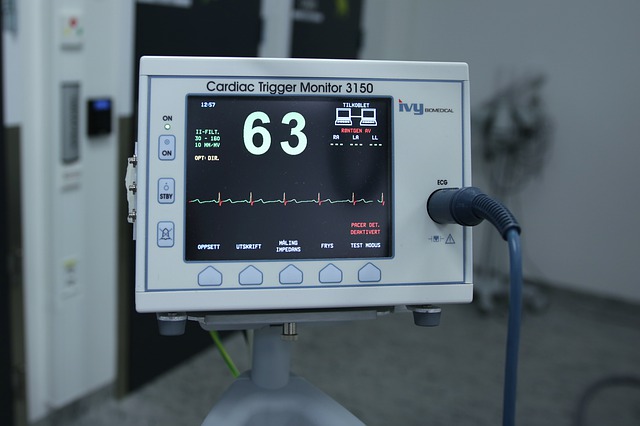
In recent years, there has been a concerning rise in the incidence of heart attacks. Perhaps you’ve heard about the Bollywood star Shreyas Talpade, who recently suffered a heart attack at the age of 47. This has prompted me to shed light on the reasons behind heart attacks, how to safeguard ourselves, and ways to protect our loved ones.
What is a Heart Attack?
A heart attack occurs when the heart suddenly stops beating due to a disruption in blood supply. The heart is a pumping machine that pumps and supplies blood to every body part and tissue for nourishment. The heart to function properly requires proper blood supply and nutrition for the nourishment of the muscle of the heart (cardiac muscle).
A heart attack, or myocardial infarction, occurs when the blood flow to a part of the heart muscle becomes blocked. This blockage can be due to a blood clot or plaque buildup in the coronary arteries, which supply oxygen-rich blood to the heart. When the blood flow is restricted or cut off, the affected part of the heart muscle begins to die due to the lack of oxygen.
The role of cholesterol in heart attack
Cholesterol is a fatty substance essential for various bodily functions, including producing hormones and cell membranes. However, not all cholesterol is the same, and it is categorized into different types based on the lipoproteins that carry it through the bloodstream.
- Low-density lipoprotein (LDL) Cholesterol (Bad Cholesterol):
- LDL cholesterol is often called “bad” cholesterol because elevated levels can lead to the buildup of plaque in the arteries, a condition known as atherosclerosis.
- Atherosclerosis narrows the arteries, restricting blood flow and increasing the risk of cardiovascular diseases, including heart attacks and strokes.
- High LDL cholesterol levels are associated with an increased likelihood of developing coronary artery disease.
- High-Density Lipoprotein (HDL) Cholesterol (Good Cholesterol):
- HDL cholesterol is considered “good” because it helps remove LDL cholesterol from the bloodstream, transporting it to the liver for excretion.
- Higher levels of HDL are associated with a lower risk of heart disease, as it prevents plaque buildup in the arteries.
- HDL is a scavenger, picking up excess cholesterol and transporting it away from the blood vessels.
When the blood level of LDL cholesterol elevates, it also increases the risk of heart attack.
Identifying Cholesterol Levels
Contrary to common belief, no clear signs or symptoms indicate high levels of bad cholesterol in our bodies. Regular blood tests are essential to assess cholesterol levels accurately. Monitoring these levels allows us to maintain a healthy balance proactively.
Tips for heart health
Heart health is an important aspect of overall wellness. Taking care of your heart can help prevent heart disease, which is the leading cause of death worldwide. Here are some tips for maintaining good heart health:
- Regular exercise can help lower blood pressure, reduce cholesterol levels, and improve overall cardiovascular health. Aim for 30 minutes of moderate exercise, such as brisk walking, most days of the week. A recent study1 confirms that modifying your activity level, such as changing a morning or evening walk into a brisk walk, can reduce the risk of heat attack significantly.
- Eat a healthy diet: A healthy diet can help prevent heart disease by reducing risk factors such as high blood pressure, high cholesterol, and obesity. Even awkward snacking habits like snacking late at night are not good for the heart, finds a study2. Eat plenty of fruits and vegetables, whole grains, lean proteins, and healthy fats. Studies have proved that eating nuts is very good for heart health.
- Manage stress: Chronic stress can increase the risk of heart disease. Find ways to manage stress, such as meditation, yoga, or deep breathing exercises.
- Quit smoking: Smoking is a major risk factor for heart disease. If you smoke, quitting can greatly reduce your risk of heart disease.
- Limit alcohol intake: Drinking too much alcohol can increase blood pressure and contribute to heart disease. Limit your alcohol intake to no more than one drink per day for women and two drinks per day for men.
Conclusion
In summary, the increasing incidence of heart attacks emphasizes the need for awareness and proactive steps. By understanding the role of cholesterol, regularly monitoring levels, and making lifestyle adjustments, we can significantly reduce the risk of heart attacks. Let’s prioritize our heart health and make informed choices for a healthier, happier life.
Keep Reading: Heart failure & Diabetes: High risk of heart failure in diabetic women than men
The author is a physiotherapist who has been practising for the last 17 years. He holds a Bachelor's in Physiotherapy (BPT) from SVNIRTAR (Swami Vivekananda National Institute of Rehabilitation and Research), one of the prestigious physiotherapy schools in India.
Whatever he learns dealing with his patient, he shares it with the world through blogs and e-books. He also owns a YouTube channel, "Sunit Physiotherapist" with over 8 lakh active subscribers. Here, he shares everything he gets to learn serving the patient.





